Mercedes-Benz Vision EQXX is a solar cell-clad EV with huge range and a 47.5-inch 8K display
Mercedes imagines the future of its electric cars
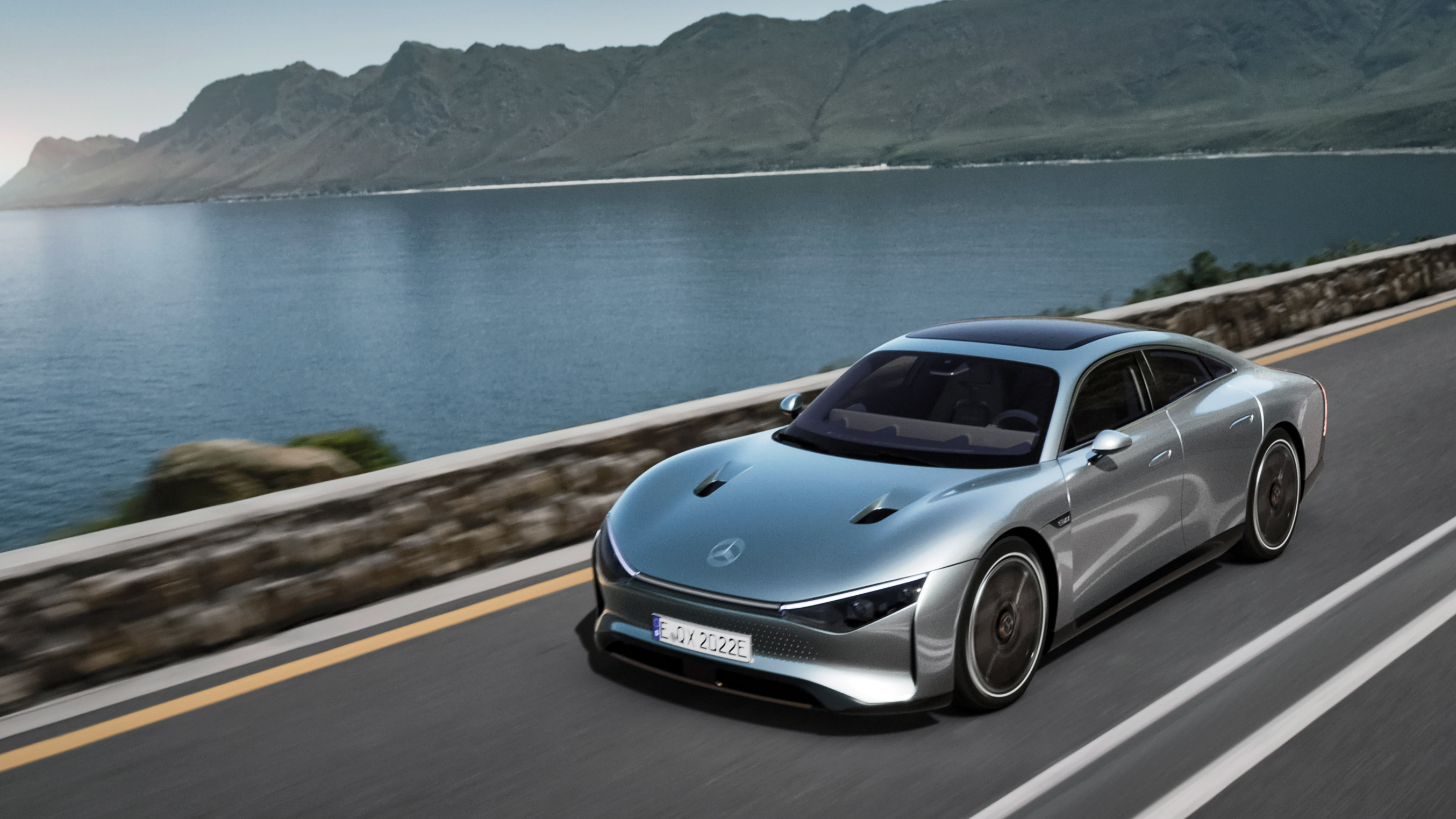
The covers have been taken off the Mercedes Vision EQXX at CES 2022, a new concept (or "road-legal research prototype" as it's referred to in official comms) that shows us how Mercedes imagines the future of electric cars.
And it's the range of Mercedes' new concept EV that is the real headline-grabbing stat, with the German manufacturer claiming the Vision EQXX can travel over 1,000km (over 620 miles) on a single charge - a market leading figure.
To give you an idea of the distance you could theoretically drive on a single charge of the EQXX, the range is equivalent to a trip from Berlin to Paris, from New York City to Cincinnati, Ohio, or from Beijing to Nanjing.
Update: we've updated this article to include more information about the Vision EQXX, including more details on its battery, that massive 47.5-inch display and exclusive details on its top speed and 0-100km/h specs.
Mercedes claims, based on average distances driven per year, Vision EQXX drivers in the US and China would - on average - only have to recharge twice a month, while European drivers would typically only have to recharge once a month.
What's more, the firm says it has squeezed the energy of its flagship Mercedes-Benz EQS into the dimensions of a compact car, with this technological breakthrough aided by the firm's Formula 1 know-how.
- Mercedes-Benz EQS review: effortless luxury and performance
A concept close to conception
Power output: 150kW
Battery: 100kWh
Range: over 1,000km (620 miles)
Top speed: 140km/h (87mph)
0-100km/h: 7 seconds
Drag coefficient: 0.17
Main display: 47.5 inches, 8K
As this is a concept, the EV won't actually go on sale, but Mercedes says it's very close to a production car, with a number of technologies featured here set to make their way into an electric car from the brand in 2024 or 2025.
Get daily insight, inspiration and deals in your inbox
Sign up for breaking news, reviews, opinion, top tech deals, and more.
During an exclusive press briefing with Daimler AG's Chief Technology Officer for the Vision EQXX, Markus Schafer said a "number of elements of the car are close to moving into [a] production [vehicle]. We're very close to a serious car we'll see in 2024."
That includes its new battery technology with offers up the car's massive range, as well as the upgraded MBUX operating system splashed across the mammoth display inside the car.
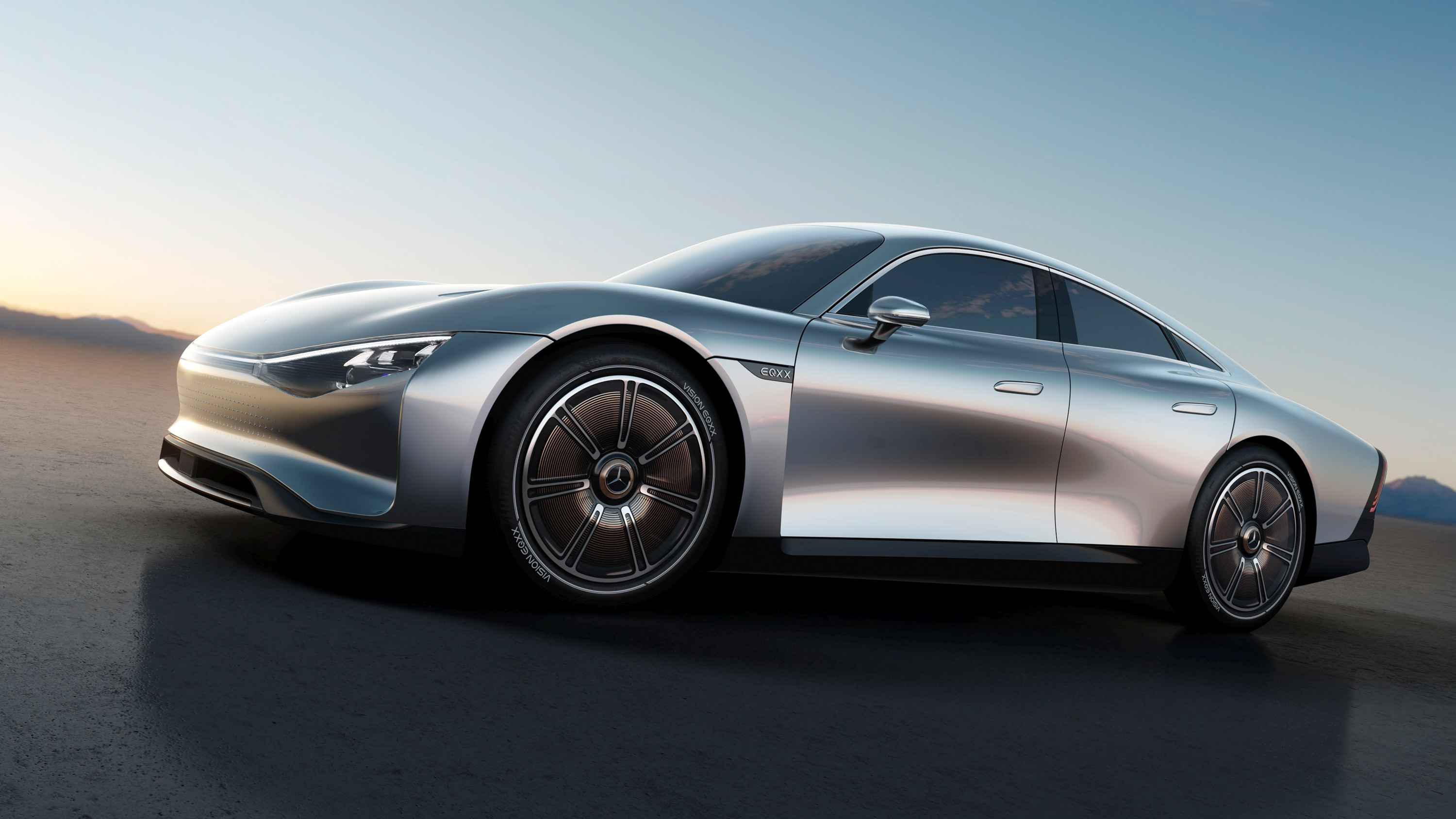
Electric efficiency
Mercedes is keen to make its electric cars as efficient as possible, as Schafer explains. "We think range matters for our customers, and efficiency matters. This program is all about efficiency and reducing electrical consumption.
"We want to have the lowest possible consumption", and the Vision EQXX certainly showcases that desire.
Battery chemists at Mercedes have managed to produce a battery with a capacity of 100kW in a package that is 50% smaller and 30% lighter than the comparable battery in the EQS.
"Ultra high efficiency will be our goal, as will increased range, at least for a period of time where we have to deal with a challenging charging network for quite some time."
What this means is EV development is moving rapidly, and smaller electric vehicles now have the opportunity to benefit from increased range - something that has mainly been reserved for larger vehicles, until now.
Another aspect that helps the Vision EQXX gain so much range is its aerodynamics. The EQS holds the world record as the first production car in the world with a Cd value of 0.20 (beating out the Lucid Air with its 0.21 score), but the EQXX bests that value, with a drag coefficient rating of Cd 0.17.
There's even a 'lightweight F1 subframe' at play here, which Mercedes says "brings racing efficiency to the road."
We hoped this would translate to some pretty impressive acceleration and top speed stats, but that's not the case. In fact, the Vision EQXX top speed is just 140km/h (around 87mph), which Mercedes exclusively revealed to TechRadar - that's the kind of top speed you'd expect from a budget family car, rather than an ultra-premium Mercedes.
However, this concept wasn't built with speed in mind, it's all about efficiency and range, and it's certainly achieved in those areas.
For those who are curious, Mercedes says that the Vision EQX can do 0-100km/h (0-62mph) in 7 seconds - again, hardly blistering, but that's really not the point here.
The Vision EQXX also features a retractable rear diffuser that folds down and out under the rear end of the car at 60km/h (and then retracts at 30km/h) to further enhance the efficiency profile of the back end.
All of this helps the Vision EQXX achieve its market-leading 1,000km (around 620 miles) range on a single charge, and it also supports fast charging that can see 300km (roughly 186 miles) replenished in 15 minutes.
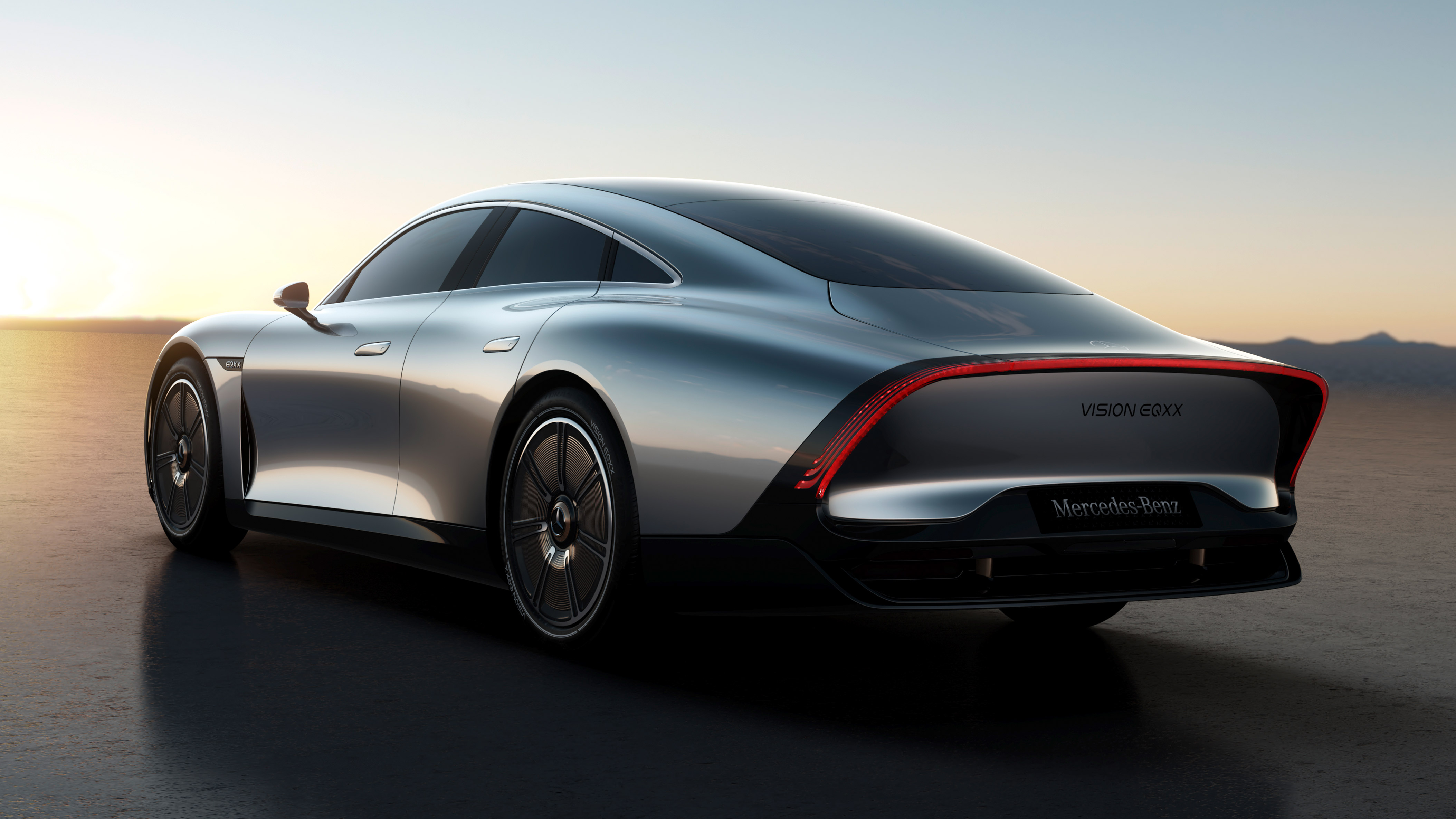
Super solar
We've seen a number of electric car manufacturers dabble with solar panels on their vehicles already, and the Vision EQXX joins the crowd with 117 solar cells on its roof.
Unlike other EV solar-panel-systems however, the setup on the EQXX could be far more useful, with Mercedes claiming that the ultra-thin roof panels "can add up to 25km (around 15 miles) of range on long-distance journeys in a day."
Now, that is the absolute best-case scenario in "ideal conditions", but it's significantly better than Hyundai's quoted 5-6 miles per day on the solar-panel clad Ioniq 5.
Energy gained via the solar cells is stored in a separate battery, which is used to power the climate blower, lights, infotainment system and other ancillaries - leaving more juice in the main battery for actual driving.
And this technology isn't just reserved for the Vision EQXX concept, with Schafer saying the company has "made a very efficient panel not just for EQXX" and confirming it will feature "in future vehicles".
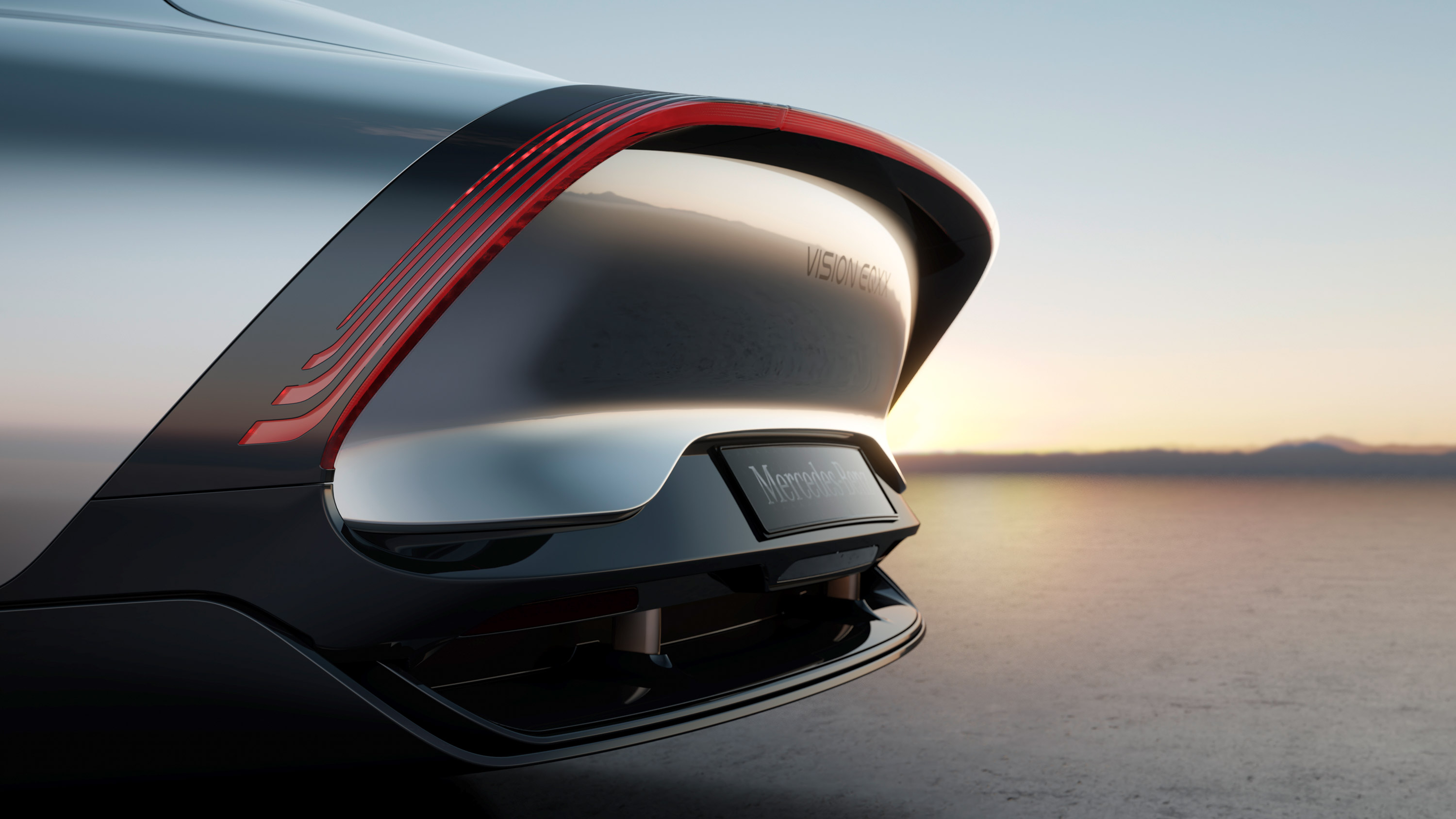
Substantial sustainability, supersized screen
Inside the Vision EQXX you'll find a range of sustainable materials, from a verified vegan leather alternative made from mycelium in the detail of the seat cushions to high-strength, biotechnology-based and certified-vegan silk-like fabric used for the door pulls.
Meanwhile, the carpets are made from 100% bamboo fiber, and recycled PET bottles feature in the cabin materials.
What dominates the interior however, is the screen Mercedes uses. This is the first time the firm is offering a completely seamless display in a car - the 'Hyperscreen' in the EQS is actually three separate displays in one curved glass unit.
The Vision EQXX one-ups Hyperscreen with its own 47.5-inch mini-LED display, which stretches from pillar to pillar, across the entire dash, and features an eye-popping 8K resolution.
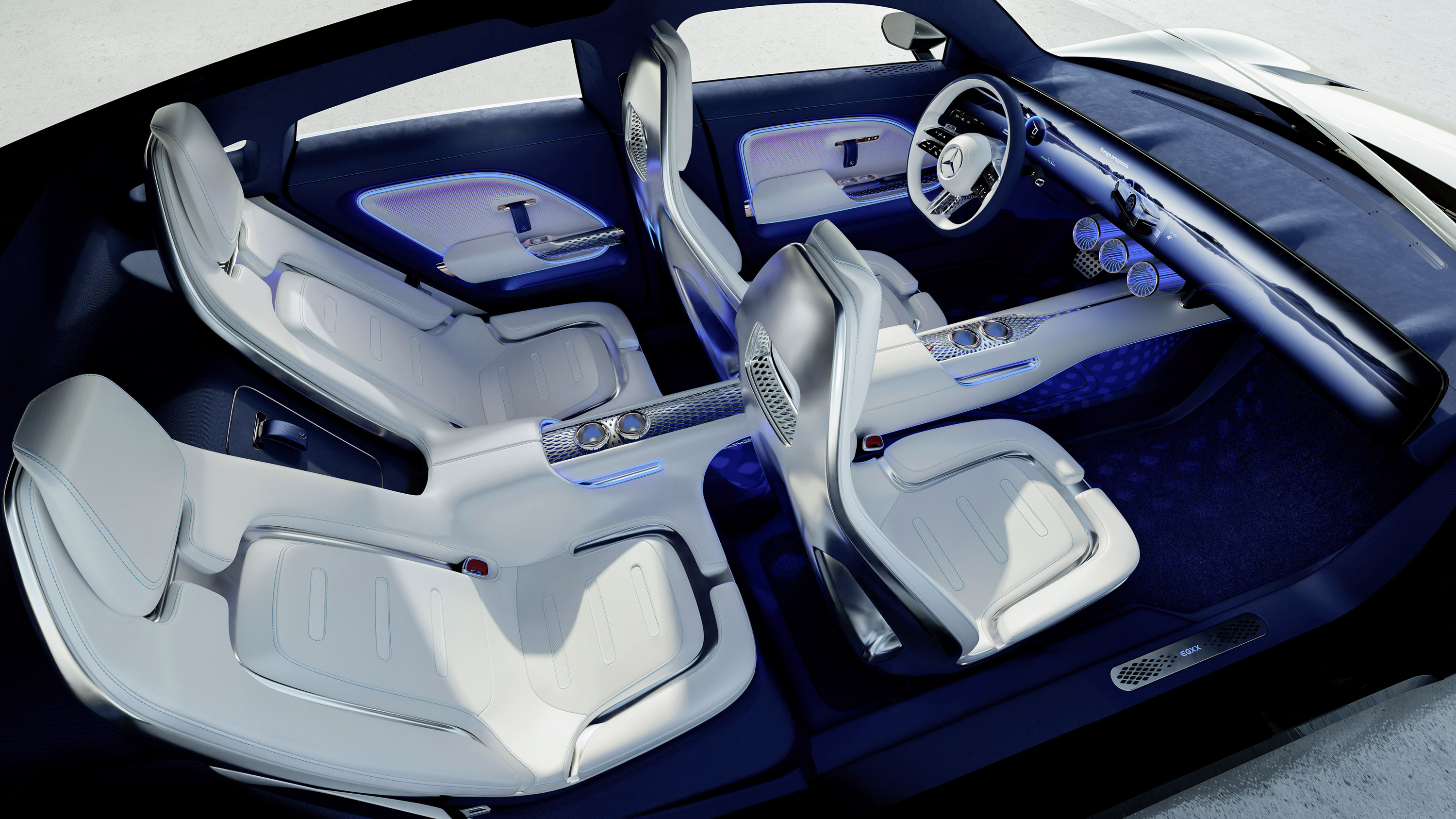
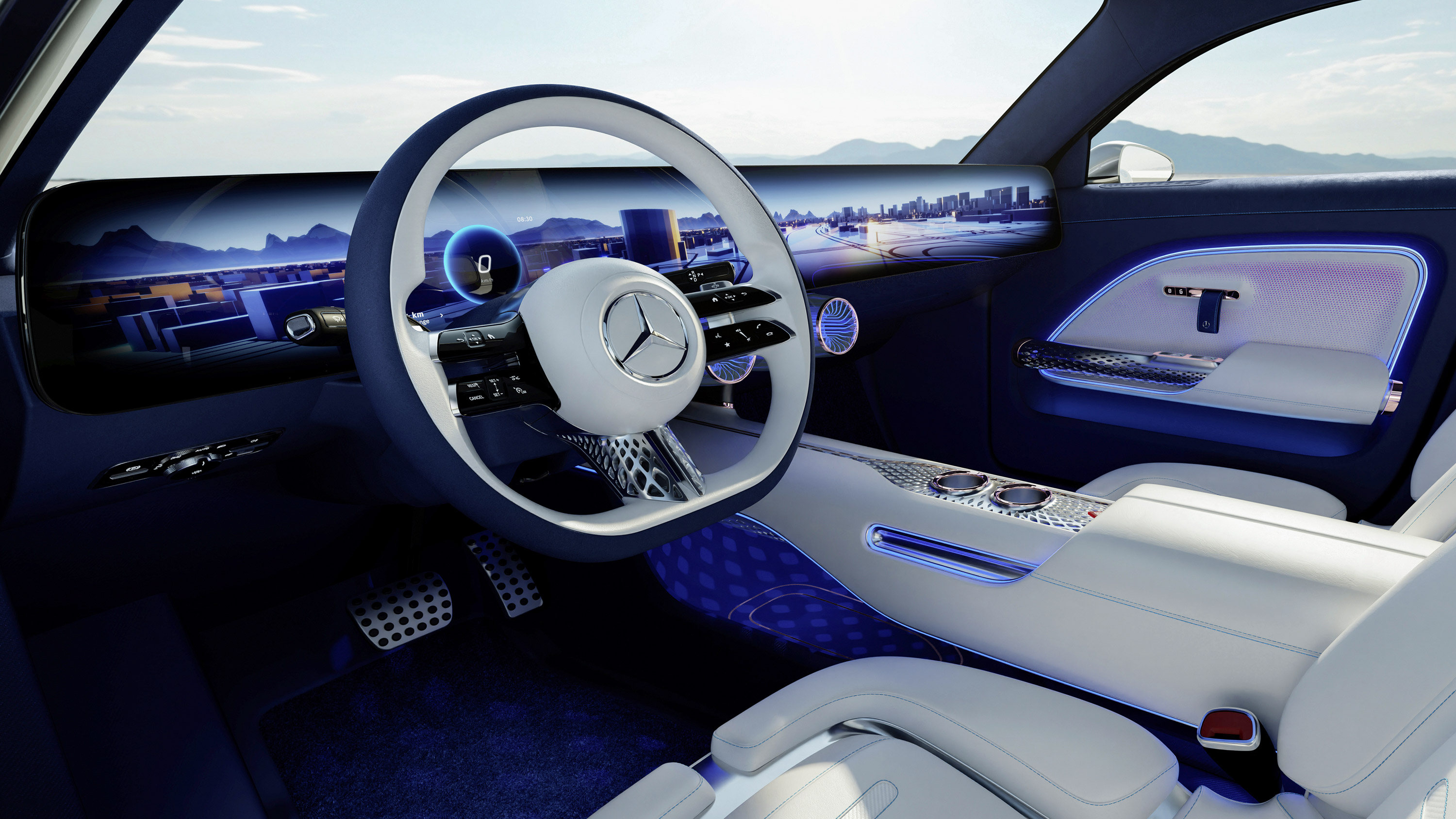
On-screen you'll find a real-time 3D navigation system, an enhanced 'Hey Mercedes' voice assistant and even an efficiency assistant to help you get the most range from your charge.
Not that you'll necessarily be using all of the screen at the same time. As Zane Amiralis, Head of Advanced Experience Design at Daimler AG explain to TechRadar:
"Just because we have a large screen, doesn't mean we have to use all of it all of the time - and that's the approach we're using here.
"We have an intelligent assistant who is managing the smart display. We're hoping to not overload the driver or passengers with information they don't need.
"We still have traditional separation where needed between displays, but at other times it can act as one large seamless display."
The EQXX also has dedicated sound systems built into each of its seats, creating personal sound zones for each person.
This allows the front-seat passenger to watch a movie on their portion of the screen and listen to it without the need for headphones, while the driver wouldn't hear any of the audio from the film, thus reducing any possible distraction.
As we've already said, the Mercedes Vision EQXX is a concept electric car, so it's never going to hit the market.
However, the advancements made here will translate to future Mercedes EVs - be it extended range, better battery efficiency, the introduction of more solar panels or just massive screens. There's plenty to get excited about.
- Check out all of TechRadar's CES 2022 coverage. We're bringing you all the breaking tech news and launches, everything from 8K TVs and foldable displays to new phones, laptops and smart home gadgets.

TechRadar's former Global Managing Editor, John has been a technology journalist for more than a decade, and over the years has built up a vast knowledge of the tech industry. He’s interviewed CEOs from some of the world’s biggest tech firms, visited their HQs, and appeared on live TV and radio, including Sky News, BBC News, BBC World News, Al Jazeera, LBC, and BBC Radio 4.